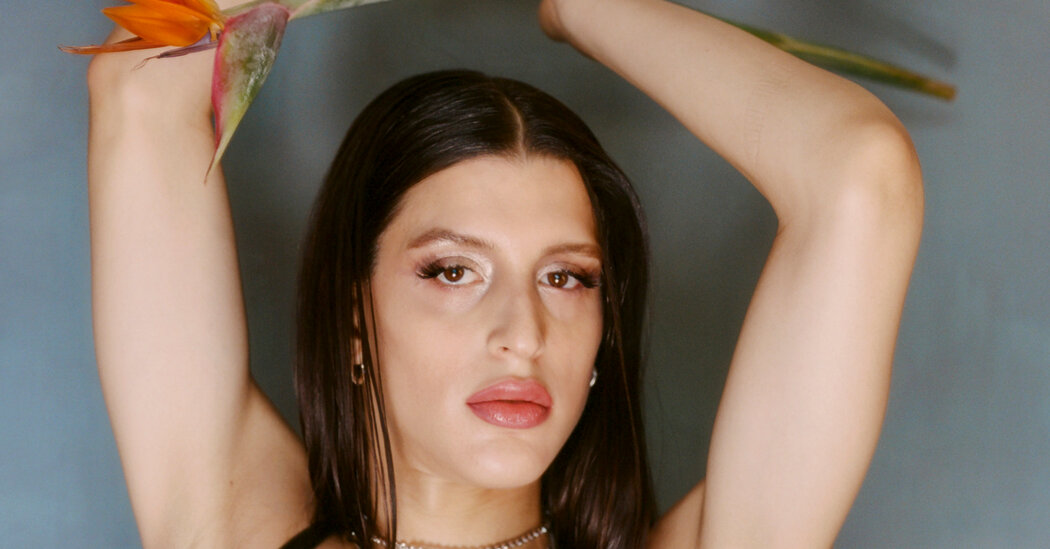
She described “KICK” as a series of “self-contained, mythical, almost world-building exercises that interrelate to one another,” in a mid-November video interview, wearing a simple gray hoodie. A mustard Telfar purse hung from a coat hook in the background, and at one point, her striped cat, Lain, jumped into the frame to say hello.
The visual universe of “KICK,” which includes the videos for “Prada/Rakata” and the album covers, is a bleak technological dystopia, sculpted in 3-D from close-up images of Ghersi’s body. There are robotic arms, electrical cables, fantastical beasts and references to the Venezuelan folk figure María Lionza, as well as cameos of Ghersi’s own paintings and calligraphy.
Ghersi’s vision for “KICK” unfolded after her 2017 album. Between the projects, she began identifying as a nonbinary trans woman. “I felt like that was something that required certain care to undergo slash survive at times. It just took up all my RAM — that reckoning that I’d been putting off for so long,” she said.
Some of her new tracks venture into the outer edges of mainstream pop, which Ghersi has flirted with more openly over the last few years. (In September, she released her official remix of Lady Gaga’s “Rain on Me,” and one of the tracks on “KICK ii” features Sia.) “What’s magical for me about engaging with pop is to not try to make a song that I think other people will like at the expense of an experiment or a sound that I love,” she said. “It’s to actually create a bridge for those that have different aesthetic sensibilities or different backgrounds to meet in a shared space that pop can provide.”
That sense of communion is at the center of Ghersi’s work. She thinks deeply about blurring the barrier between spectator and performer, allowing audience participation to permeate her shows. During her 2019 performance series at the Shed in Manhattan, a three-night engagement called “Mutant;Faith,” Arca wore hoofed stilts, munched on her custom acrylic talons and invited audience members to dance with her on a dirt surface that doubled as the stage.
Björk, who co-produced her own albums “Vulnicura” and “Utopia” with Arca, said she was immensely proud of her friend during the performances. “She improvised alone for hours, no two nights the same. Willing to make herself super vulnerable, and therefore also super fierce,” she wrote over email. “It is rare to have someone who has both emotional intelligence, high programming technique, performance and singing, humor and drama, gentleness and brutality. It is easy to admire this hyperhuman!”




